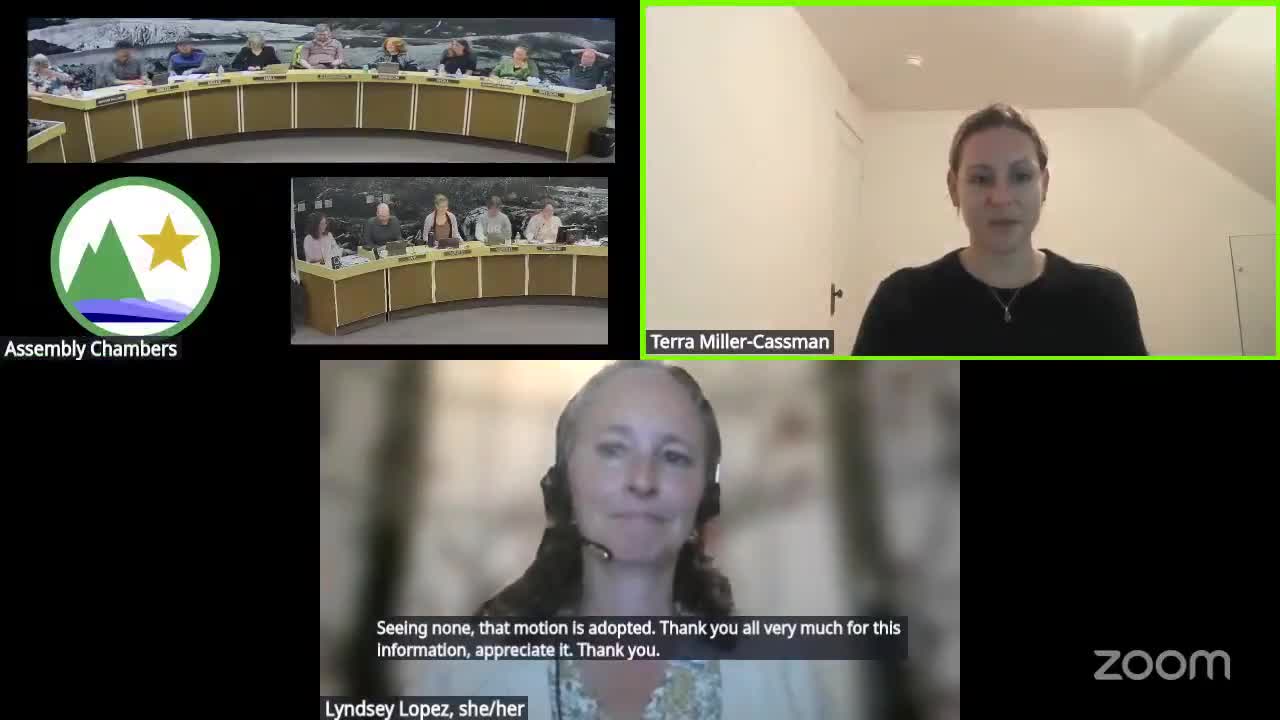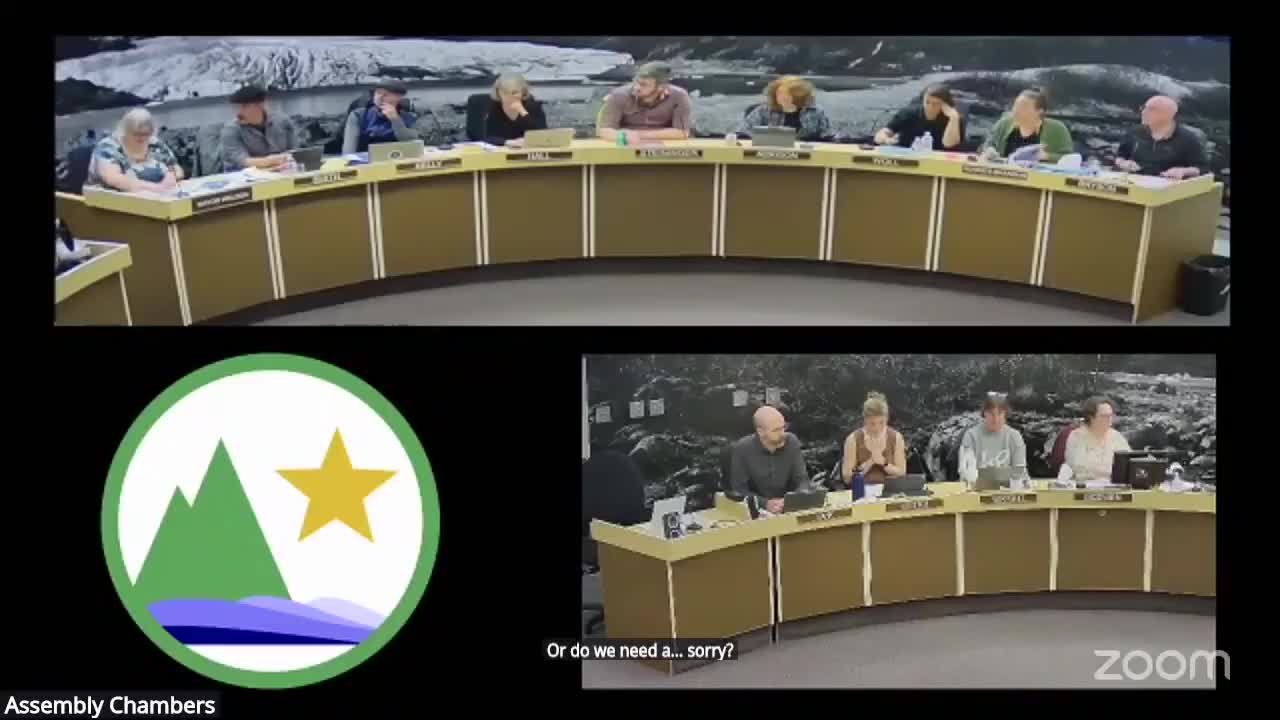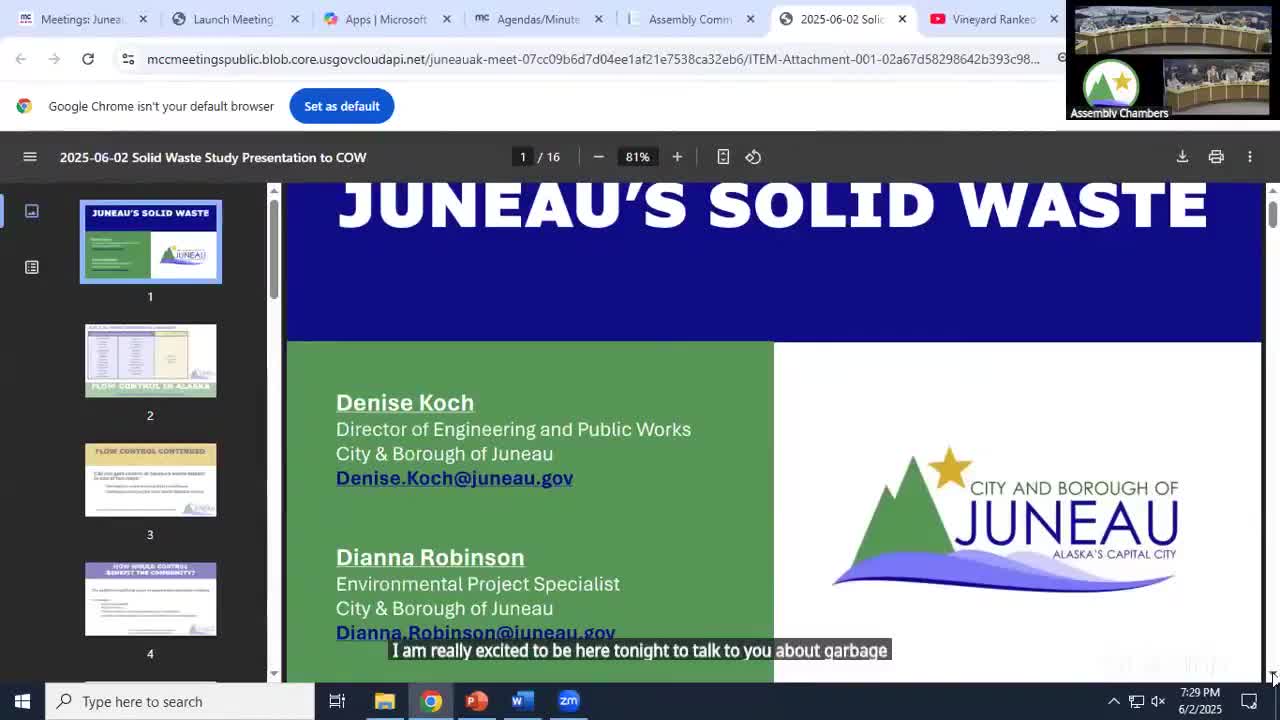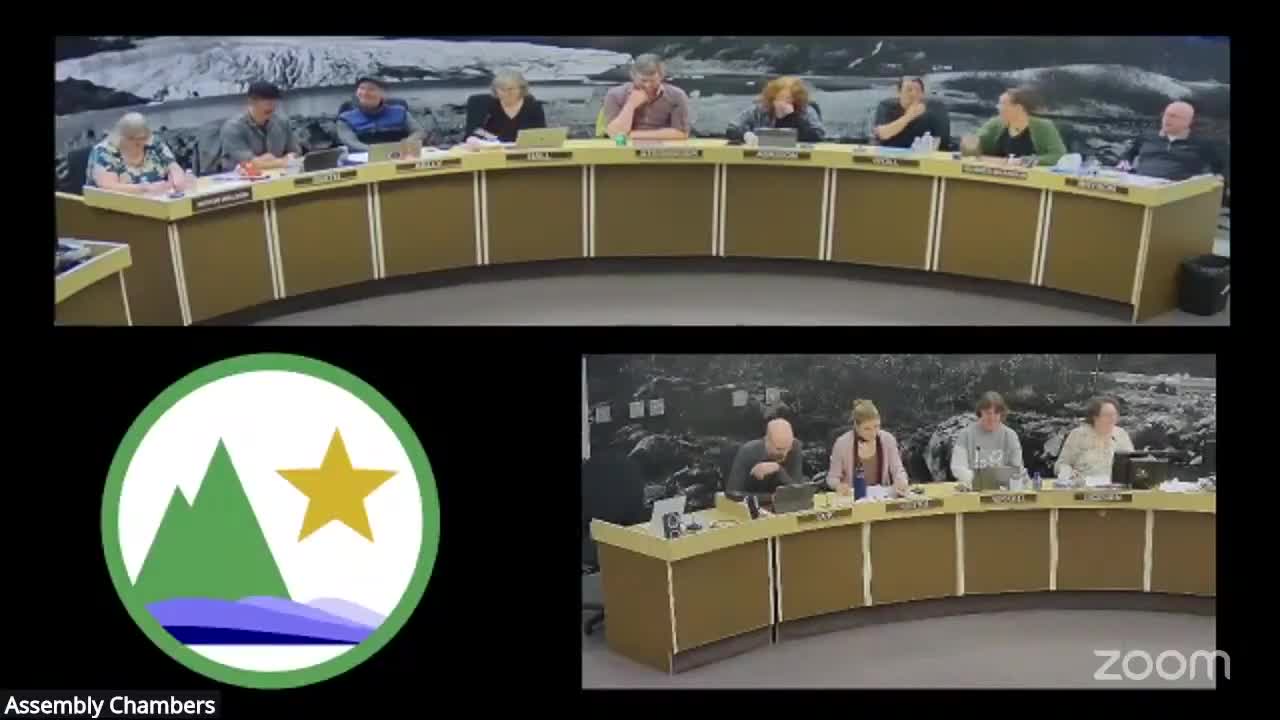Article not found
This article is no longer available. But don't worry—we've gathered other articles that discuss the same topic.

Assembly authorizes staff to prepare ordinance for up to $50,000 for public information on potential ballot measures

Assembly advances ranked-choice voting ordinance to full Assembly; staff to run public education

Juneau staff recommend transfer station; Assembly approves planning steps and up to $100,000 for operational study

